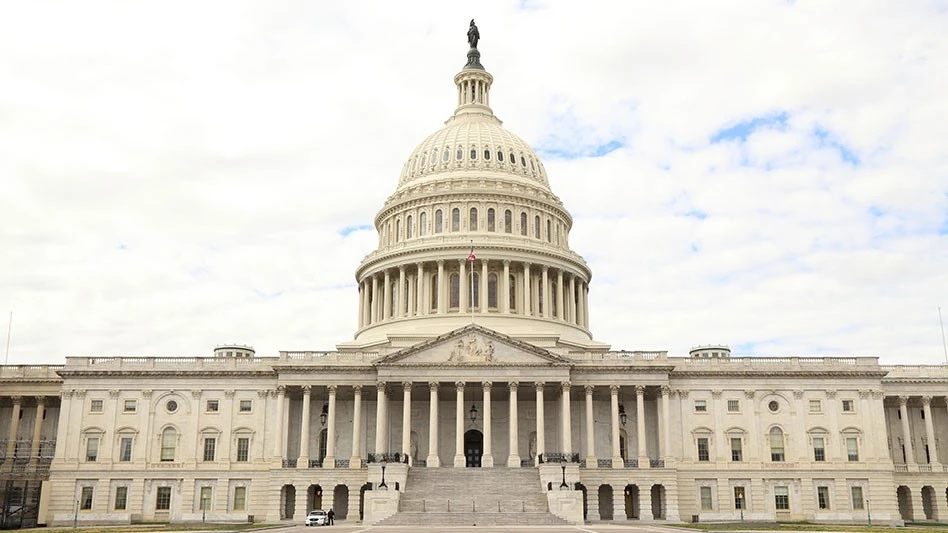
© Adam - stock.adobe.com
In June, House Reps. David McKinley and Mikie Sherrill introduced the Recycling Infrastructure and Accessibility Act (H.R. 8183) and House Reps. Joe Neguse, Tim Burchett and Bill Foster introduced the Recycling and Composting Accountability Act (H.R. 8059).
The Recycling Infrastructure and Accessibility Act would establish a pilot rural recycling program at the U.S. Environmental Protection Agency (EPA) that would award competitive grants to eligible entities that improve recycling accessibility in underserved communities, and the Recycling and Composting Accountability Act would improve data collection by requiring the EPA to collect and make publicly available data on recycling and composting rates across the country.
Senate lawmakers passed both of these bills in late July, and now these bills just await a decision by House lawmakers.
This week, the Consumer Brands Association (CBA), Washington, has reached out to House Energy & Commerce Committee members urging them to pass both H.R. 8183 and H.R. 8059.
“A core focus of our organization is promoting thoughtful federal solutions that will reduce waste and fix the broken recycling system,” the letter from the CBA states. “Both H.R. 8183 and H.R. 8059 are solid examples of such policies and reflect a bipartisan, bicameral commitment to addressing our nation’s recycling challenges. … Consumer Brands believes these two proposals will advance the committee’s efforts to bolster U.S. recycling rates and help Americans achieve waste-free living.”
According to CBA, the Recycling Infrastructure and Accessibility Act will provide investments to enable underserved communities to realize economic and environmental benefits of recycling. CBA says it also could help bolster the nation’s overall recycling rate.
CBA adds that the Recycling and Composting Accountability Act will help to fill “information gaps” elated to recycling and composting, helping businesses spur recycling and composting innovation.
“We need to advance solutions that address the fundamental failures of America’s fragmented recycling systems,” says John Hewitt, vice president of packaging and sustainability at CBA. “Right now, recycling is far too complicated and impractical for many consumers, and the national recycling rate is less than 35 percent. With nearly 10,000 local systems across the country, 71 percent of Americans say having various systems creates confusion and 65 percent of Americans believe recycling rules should be standardized on a national level.
“The Recycling Infrastructure and Accessibility Act and the Recycling and Composting Accountability Act are critical steps toward bolstering recycling rates and addressing consumer confusion across the country. Consumer Brands supports congressional consideration of these bills as diligent steps to improve our nation’s recycling infrastructure.”
The American Institute for Packaging and the Environment (Ameripen), St. Paul, Minnesota, also has sent a letter to legislators encouraging them to pass both the Recycling Infrastructure and Accessibility Act and the Recycling and Composting Accountability Act.
Ameripen says it plans to meet with lawmakers related to these bills before the congressional session ends.
“Ameripen supports HR 8183, which would provide grants for projects to make recycling programs more accessible to rural and disadvantaged communities,” the institute says in a statement on these two bills. “Packaging can be a lifeline to underserved communities for food and other critical products, and this bill will help those communities put in place the infrastructure, education, accessibility and markets for recovering and recycling the packaging materials of today and the future.
“Ameripen also supports HR 8059 that, among other things, would require the EPA to collect, maintain and publish data on recycling and composting rates across the country. This will provide an accurate reflection of recycling and composting performance nationally and at the state level—information that will be critical to improving existing recycling and composting programs and evaluating future recycling policies. Solutions require data, partnerships and communication to build a packaging design, delivery, collection, recycling, reuse system based on what we know works and what does not.
“In July 2022, the U.S. Senate unanimously passed two companion bills, the Recycling and Composting Accountability Act (S 3742) and the Recycling Infrastructure and Accessibility Act (S 3743). With passage of the House bills in upcoming legislative work days, the legislation can then be sent to President Biden for signature into law,” Ameripen concludes.
Latest from Recycling Today
- BMW Group, Encory launch 'direct recycling’ of batteries
- Loom Carbon, RTI International partner to scale textile recycling technology
- Goodwill Industries of West Michigan, American Glass Mosaics partner to divert glass from landfill
- CARI forms federal advocacy partnership
- Monthly packaging papers shipments down in November
- STEEL Act aims to enhance trade enforcement to prevent dumping of steel in the US
- San Francisco schools introduce compostable lunch trays
- Aduro graduates from Shell GameChanger program





